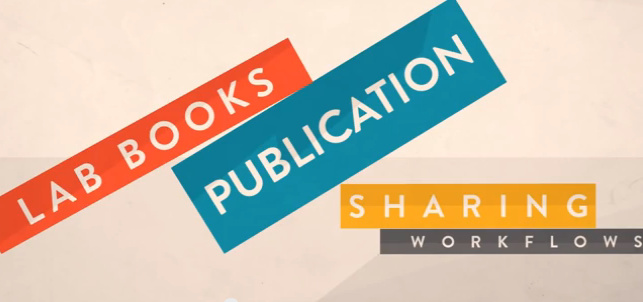Quebec’s Synbiota brings ‘open science’ to the UX of biotech research
by Jared Lindzon — Apr 11 '14
by Jared Lindzon — Apr 11 '14

Just as open-source development ushered in a technological revolution, Connor Dickie believes a similar revolution is on the horizon in the biotech industry. His vision is to provide a platform that allows people from all walks of life to collaborate and build open source biotech innovations.
“Instead of bioengineering costing millions and taking years of your life, it costs just thousands now and takes months, and in fact it could be just hundreds of dollars and days,” said Dickie. “If the cost is going down, that means more people are going to get involved, and not just more people in big companies and governments, it will be designers and students and mothers. They’ll come up with really interesting ideas that were never thought of before, just like what happened in computing.”
Dickie, along with co-founders Justin Pahara, Pantea Razzaghi, and Mason Edwards have created an ‘open science’ platform called Synbiota, which provides complete access to some of the 400 projects currently being pursued by its 800 users.
The platform provides users with access to researcher’s electronic lab books, allowing them to either collaborate or build off of research that is already being conducted. It also allows for Twitter-like mentions, attributions, and hashtags, to provide users the ability quickly find existing research in areas of interest. This means that instead of requiring a lab and a research grant, everyday people can contribute their research and ideas from an iPad at a coffee shop.
“In terms of user experience for collaboration, we’re using the common tools that remote collaboration has been doing for the past 20 years in computing,” said Dickie.“A person who’s interested can inspect a project and look at any DNA codes that has been stored in that project, they can look at any lab notes and lab book entries and experimental results that have been included in that project, they can ask to join a project, and if they think there is valuable stuff in that project they can fork it into their own repository.”
Dickie adds that Synbiota has also recently partnered with a venture capital firm in Ireland called SOSventures, which has opened up a $300,000 fund to finance some of the projects that result from the platform, and provide an incubator-like environment for the life science innovations.
“People that come on our platform, they can sign up, start projects, do research, bring in colleagues, and they can also take their projects to a marketplace that we provide,” said Dickie. “The idea is to really empower the user with the full capabilities, from research right to market.”
Dickie believes that these tools will be vital in empowering everyday people to contribute to biotechnology projects, and while DNA coding isn’t as common today as computer coding, Synbiota has had some encouraging signs that the industry is moving towards the mainstream.
“We won the South By Southwest interactive accelerator, and we got the top prize in the innovative world technologies category, and that was fantastic for us because it really is proof positive that synthetic biology and this new type of biotech is breaking into popular culture,” he said.
Just as computing was once only accessible to major corporations and government entities, Dickie hopes that biotech will soon break free from the lab environment, allowing everyday people to contribute their innovations to a ‘bio app store.’
Jared Lindzon is a freelance journalist based in Toronto covering technology and Canada's startup community, among other topics. He is regularly featured in the Toronto Star, the Globe & Mail, the National Post, as well as an array of other print and digital publications.
Twitter LinkedIn Google+
Apr 17 '14

Apr 16 '14

Apr 15 '14

Apr 11 '14
Copyright © 2016 CommerceLab


